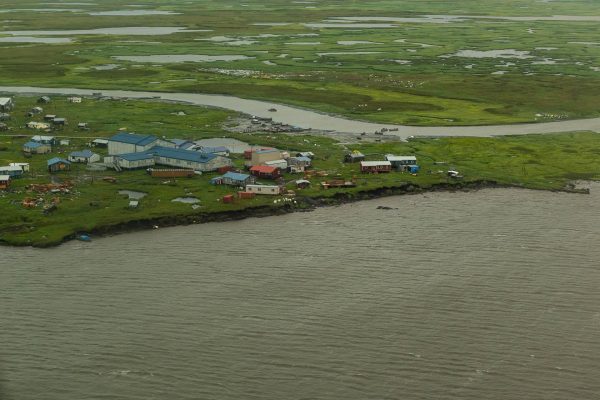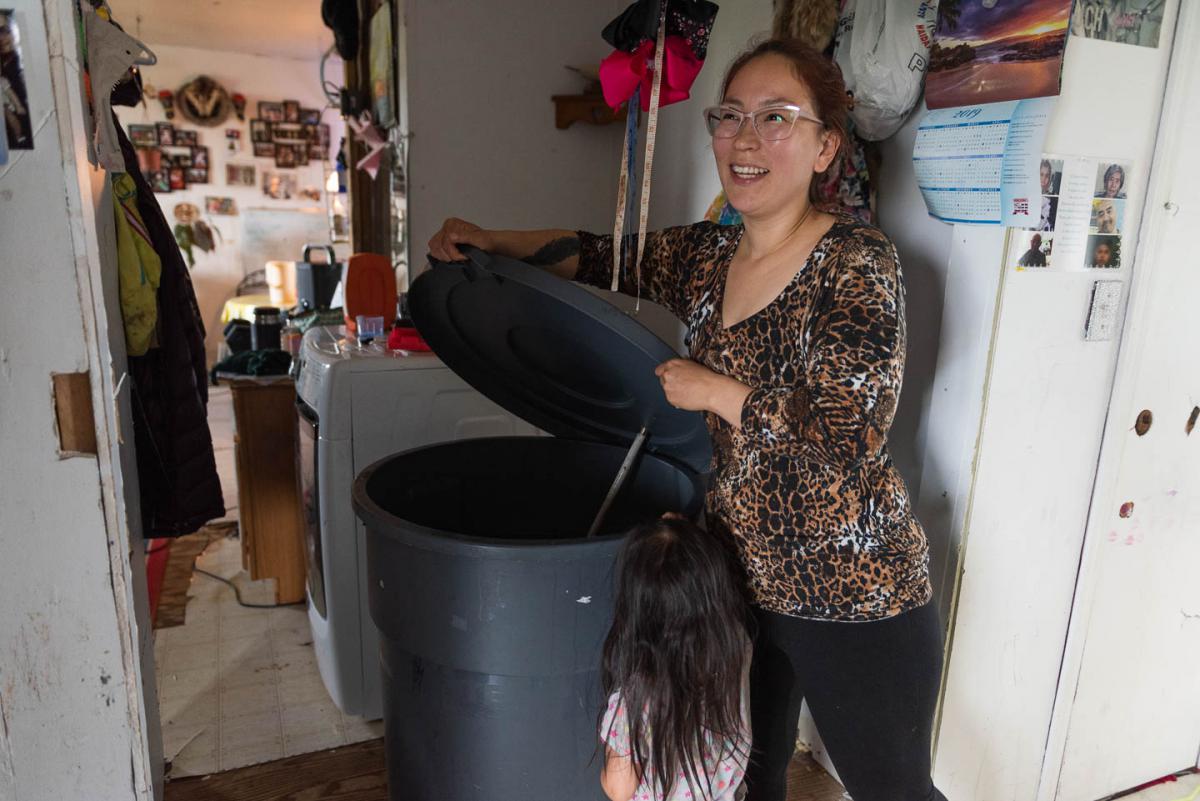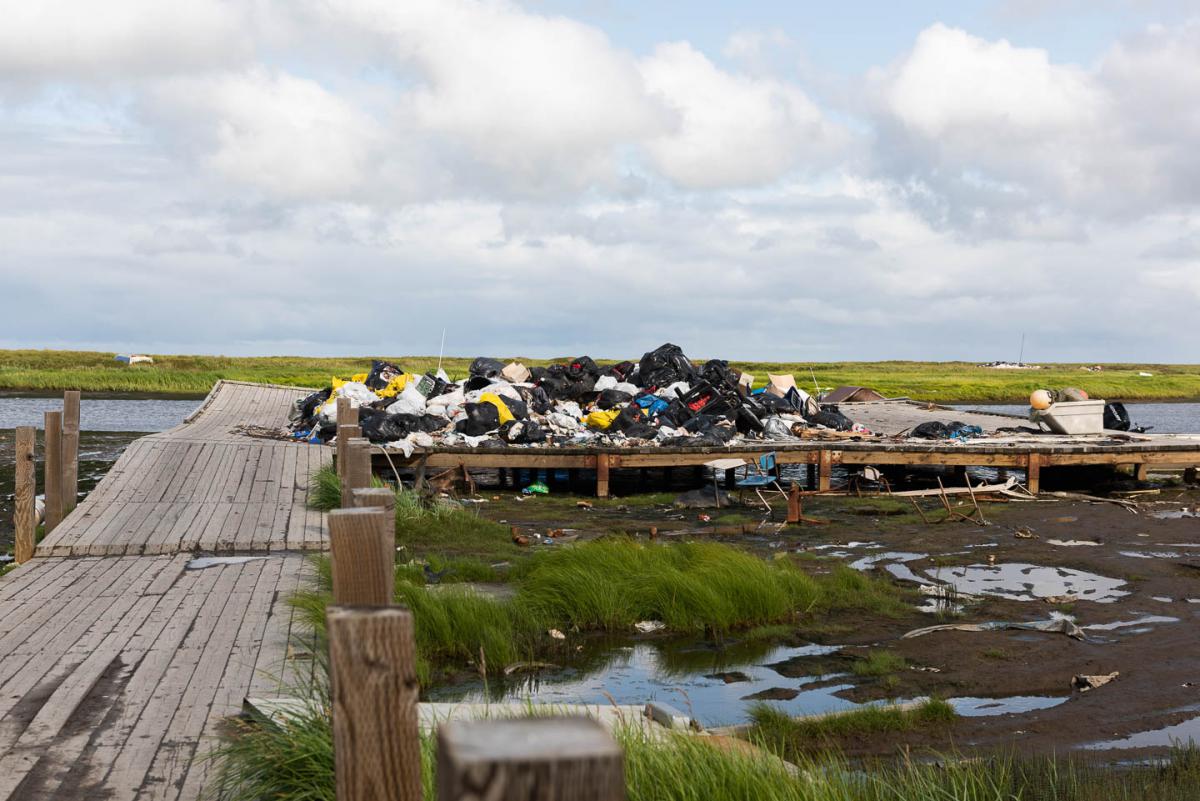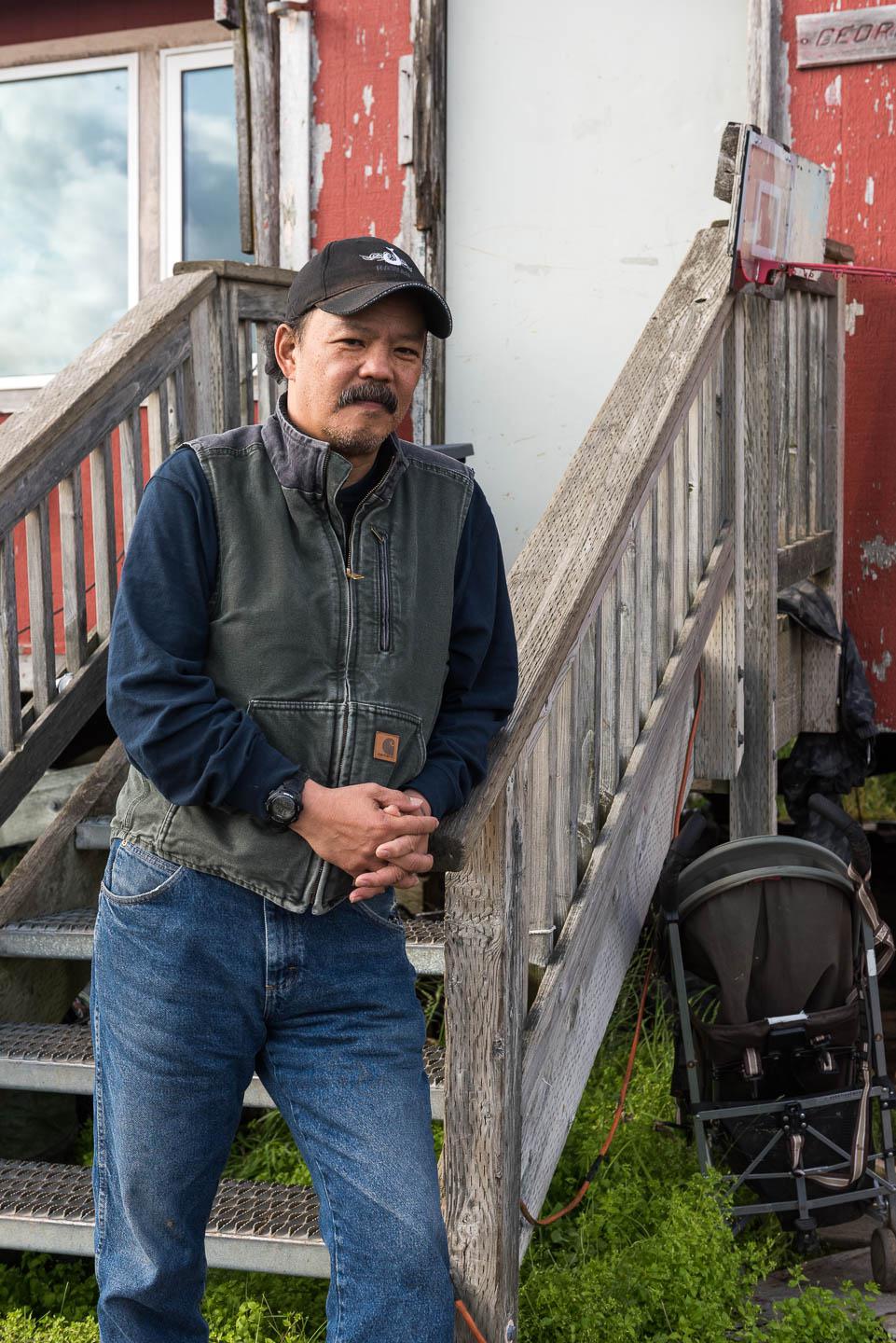
In Newtok, there’s no running water. That means you need to walk to the water plant and haul it back, one 5-gallon bucket at a time.
“You gotta be strong for that stuff,” says resident Ashley Tom.
People end up reusing water for a lot of things, like washing their hands and their clothes. Carolyn George noticed that her kids were getting sick often, and that she had to do something about it.

“When it rains, we pour the extra water in here,” George said, pointing to a barrel. A hose runs from the barrel through a water pump, and crawls neatly along the ceiling to her kitchen sink. The result is homemade running water.
George calls it a collaboration between her and her husband. “I thought it up, and I told him to do it for me,” she said.
George says that a few families in Newtok have already followed her blueprint, but she’s not satisfied.
“It would be nice to have flushing toilets,” George said.
Newtok’s toilets also come in 5-gallon increments called honey buckets. Everyone has to empty their own when they’re full, but where do they go?

“One time I was right next to the store and they were dumping it right there,” resident Ashley Tom remembers.
But most of the time residents dump them in the river, which is now less than 20 feet from someone’s home.
Tribal Administrator Andrew John explained,“The funding agencies did not want to invest into a dying infrastructure like Newtok.”
About 15 years ago, the U.S. Government Accountability Office called out agencies for funding a million-dollar health clinic in Newtok. They asked if a less expensive, more temporary solution would have been more appropriate. Since then, agencies are more reluctant to fund projects in any village that plans to relocate.
But that doesn’t explain the garbage.
There’s a pile of over 100 bags of trash sitting on the dock, and there are more piles strewn across town because the landfill is across the river and the tides make it difficult to cross.

There is funding available to solve this problem. Newtok’s relocation director, Romy Cadiente, says that they used to have a trash man to help ferry the bags, but the last grant application fell through the cracks.
“That’s just a perfect example of a lot of things that need to happen,” Cadiente said. “Construction on Mertarvik site, and taking care of the infrastructure and the residents that are still here.”
Cadiente says that they filled out the application this year, but people are more excited about what will happen once they move across the river.
“We’re heading into an area where this sort of problem won’t happen to the residents in Mertarvik,” Cadiente said.
In Mertarvik there will be a landfill that you can walk to, toilets that flush, a public washateria, and most importantly, running water.




